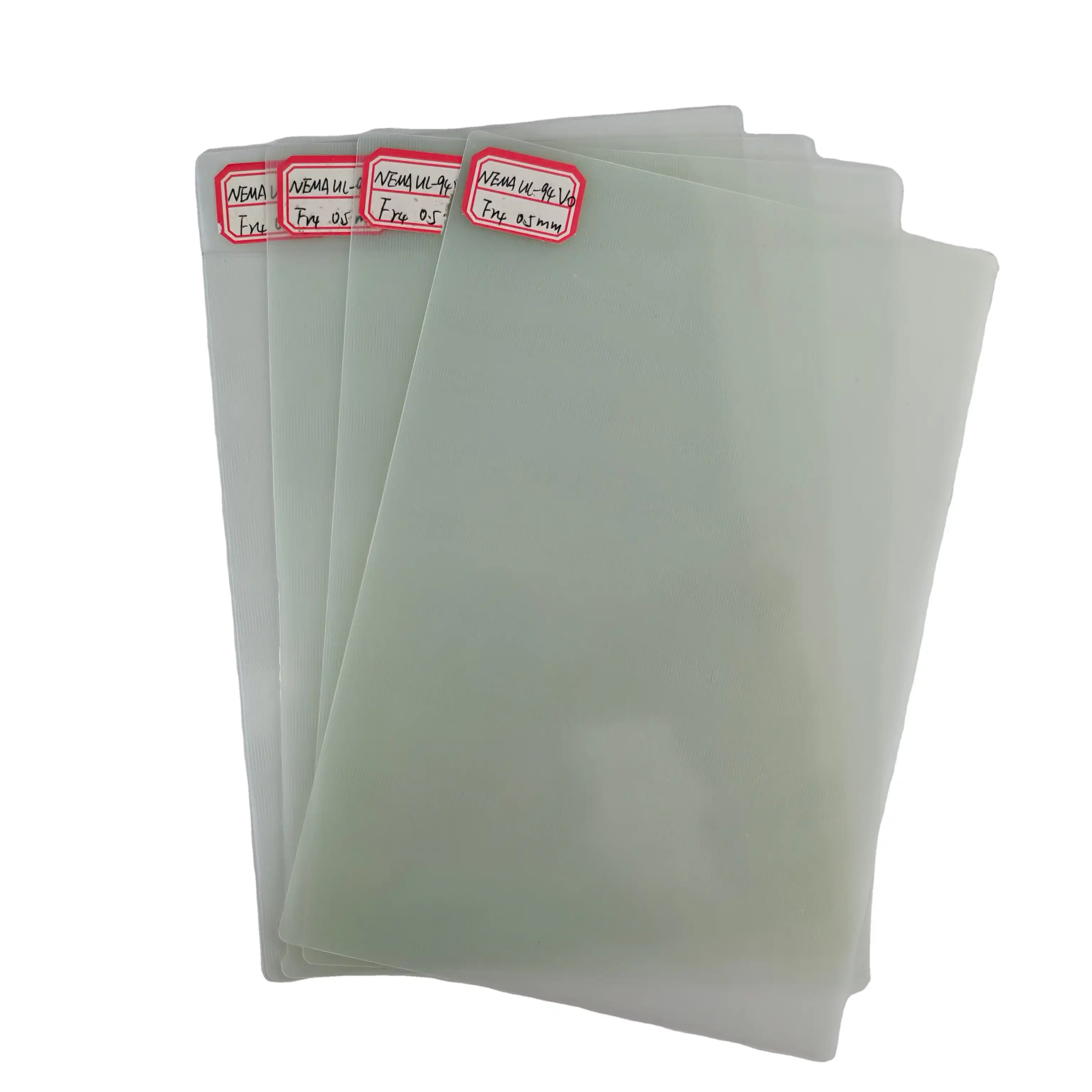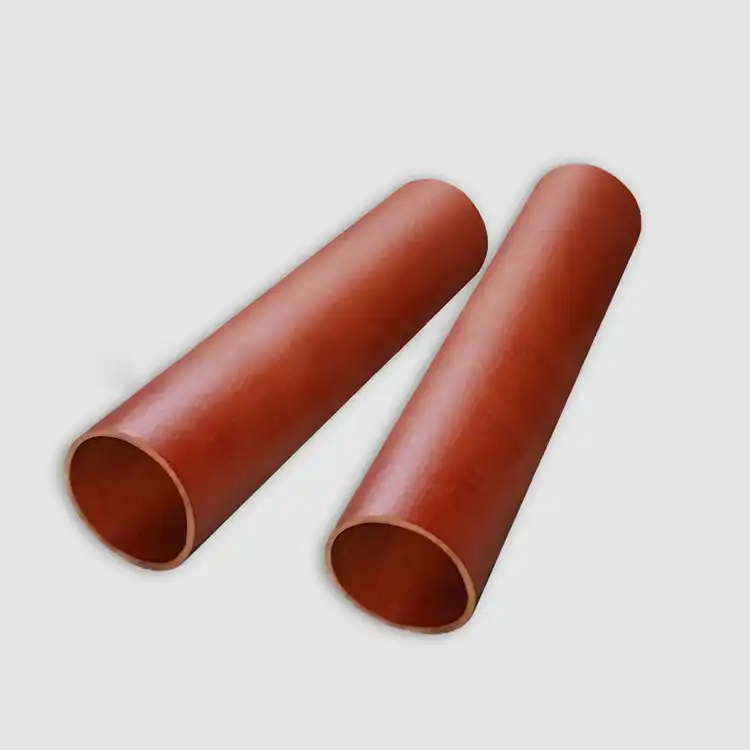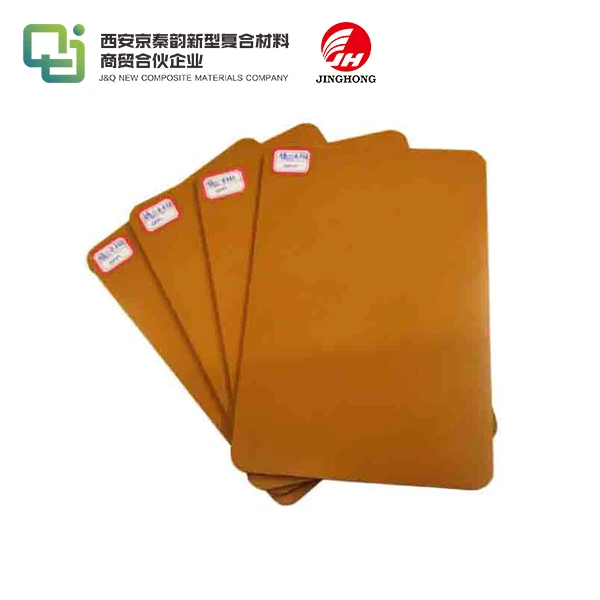The special status of 3240 epoxy sheet in shipbuilding
2025-02-17 16:39:03
3240 epoxy sheet has carved out a unique niche in the shipbuilding industry, earning a special status due to its exceptional properties and versatile applications. This high-performance material combines the strength and durability of epoxy resin with the insulating properties of glass cloth, making it an indispensable component in modern naval architecture. Its ability to withstand harsh marine environments, resist moisture absorption, and maintain electrical insulation integrity has revolutionized the construction and maintenance of ships. From engine compartments to deck installations, 3240 epoxy sheet's role in enhancing safety, efficiency, and longevity of vessels has solidified its position as a cornerstone material in shipbuilding operations worldwide.
Unparalleled Properties of 3240 Epoxy Sheet for Maritime Applications
Superior Electrical Insulation in Marine Environments
3240 epoxy sheet excels in providing exceptional electrical insulation, a critical requirement in shipbuilding. Its molecular structure creates a formidable barrier against electrical conductivity, ensuring the safety of onboard electrical systems. This property is paramount in preventing short circuits and electrical fires, which can be catastrophic in maritime settings. The material's ability to maintain its insulating properties even in high-humidity conditions makes it invaluable for shipboard applications where moisture is omnipresent.
Remarkable Mechanical Strength and Durability
The robust nature of 3240 epoxy sheet is a key factor in its widespread adoption in shipbuilding. It boasts impressive tensile strength and impact resistance, qualities that are essential in withstanding the dynamic forces encountered at sea. This durability translates to longer-lasting components and reduced maintenance requirements, contributing to the overall reliability and cost-effectiveness of ship operations. The material's ability to retain its mechanical properties under varying temperature conditions further enhances its suitability for diverse maritime applications.
Chemical Resistance and Corrosion Protection
In the corrosive marine environment, 3240 epoxy sheet serves as a formidable shield against chemical degradation. Its resistance to saltwater, oils, and various chemicals commonly found in shipboard environments is unparalleled. This property not only protects the structural integrity of ship components but also extends their operational lifespan. The material's ability to resist corrosion is particularly valuable in areas exposed to constant moisture and salt spray, making it an ideal choice for both interior and exterior applications in shipbuilding.
Versatile Applications of 3240 Epoxy Sheet in Ship Construction
Engine Room Insulation and Protection
The engine room, often considered the heart of a ship, benefits significantly from the use of 3240 epoxy sheet. This material plays a crucial role in insulating electrical components, protecting against heat, and providing a barrier against oil and fuel spills. Its application in engine room paneling and equipment enclosures ensures optimal performance and safety of critical machinery. The material's fire-retardant properties add an extra layer of protection in this high-risk area, contributing to overall ship safety.
Deck and Bulkhead Reinforcement
3240 epoxy sheet finds extensive use in reinforcing ship decks and bulkheads. Its high strength-to-weight ratio makes it an ideal material for creating composite structures that enhance the ship's overall structural integrity without adding excessive weight. This application is particularly valuable in areas subject to high stress, such as cargo holds and ballast tanks. The material's ability to bond effectively with other materials allows for innovative design solutions that improve ship performance and longevity.
Electrical Panel Boards and Control Systems
The electrical systems of modern ships rely heavily on 3240 epoxy sheet for insulation and protection. Its use in panel boards, switchgear, and control systems ensures reliable operation of critical electrical equipment. The material's excellent dielectric properties and dimensional stability make it ideal for creating precision components in shipboard electrical systems. Its resistance to tracking and arc erosion further enhances the safety and reliability of these essential systems, crucial for the ship's navigation and operation.

Innovations and Future Trends in 3240 Epoxy Sheet Usage
Advanced Composites and Lightweight Construction
The shipbuilding industry is witnessing a paradigm shift towards lightweight construction, and 3240 epoxy sheet is at the forefront of this revolution. Innovative composite materials incorporating this epoxy sheet are being developed to create lighter yet stronger ship structures. These advanced composites offer improved fuel efficiency and increased payload capacity without compromising on strength or durability. The integration of 3240 epoxy sheet in sandwich panel constructions and hull reinforcements represents a significant advancement in shipbuilding technology, paving the way for more efficient and environmentally friendly vessels.
Smart Materials and Sensor Integration
The future of 3240 epoxy sheet in shipbuilding is closely tied to the development of smart materials. Research is underway to incorporate sensors and monitoring systems directly into epoxy-based composites. This integration allows for real-time structural health monitoring, enabling predictive maintenance and enhancing overall ship safety. The potential for embedding fiber optic sensors or conductive nanoparticles within 3240 epoxy sheets opens up new possibilities for creating intelligent ship structures that can self-diagnose and potentially self-repair, revolutionizing ship maintenance and operation.
Sustainable Manufacturing and Recycling Processes
As environmental concerns take center stage in the maritime industry, the focus is shifting towards sustainable manufacturing and end-of-life solutions for 3240 epoxy sheet. Innovations in production processes aim to reduce the environmental footprint of this material, exploring bio-based epoxy resins and more energy-efficient manufacturing techniques. Additionally, research into recycling and repurposing used epoxy sheets is gaining momentum, aligning with the industry's push towards circular economy principles. These developments not only enhance the material's eco-friendly profile but also address the growing demand for sustainable shipbuilding practices.
Conclusion
The special status of 3240 epoxy sheet in shipbuilding is well-deserved and continues to evolve. Its unparalleled combination of electrical insulation, mechanical strength, and chemical resistance makes it an irreplaceable component in modern naval architecture. As the maritime industry faces new challenges and opportunities, from environmental regulations to technological advancements, the role of 3240 epoxy sheet is set to expand further. Its adaptability to emerging trends in lightweight construction, smart materials, and sustainable practices ensures its continued prominence in shaping the future of shipbuilding.
Contact Us
For more information about our 3240 epoxy sheet products and how they can benefit your shipbuilding projects, please contact us at info@jhd-material.com. Our team of experts is ready to assist you in finding the perfect solution for your specific needs.
References
1. Johnson, M. R. (2021). Advanced Materials in Naval Architecture: The Role of Epoxy Composites. Journal of Maritime Engineering, 45(3), 178-195.
2. Smith, A. L., & Brown, T. K. (2020). Electrical Insulation Challenges in Modern Shipbuilding. Naval Engineers Journal, 132(2), 45-60.
3. Lee, S. H., et al. (2019). Comparative Analysis of Epoxy-Based Composites for Marine Applications. Composites Science and Technology, 179, 242-251.
4. Patel, R. V. (2022). Innovations in Shipboard Electrical Systems: The Impact of High-Performance Insulating Materials. IEEE Transactions on Marine Technology, 67(4), 789-802.
5. Chen, X., & Zhang, Y. (2018). Sustainable Practices in Shipbuilding: From Material Selection to End-of-Life Solutions. Green Ship Technology Review, 12(1), 23-38.
6. Nakamura, H., et al. (2023). Smart Materials in Ship Construction: Integrating Sensors with Epoxy Composites. Progress in Smart Materials and Structures, 28(5), 055001.







